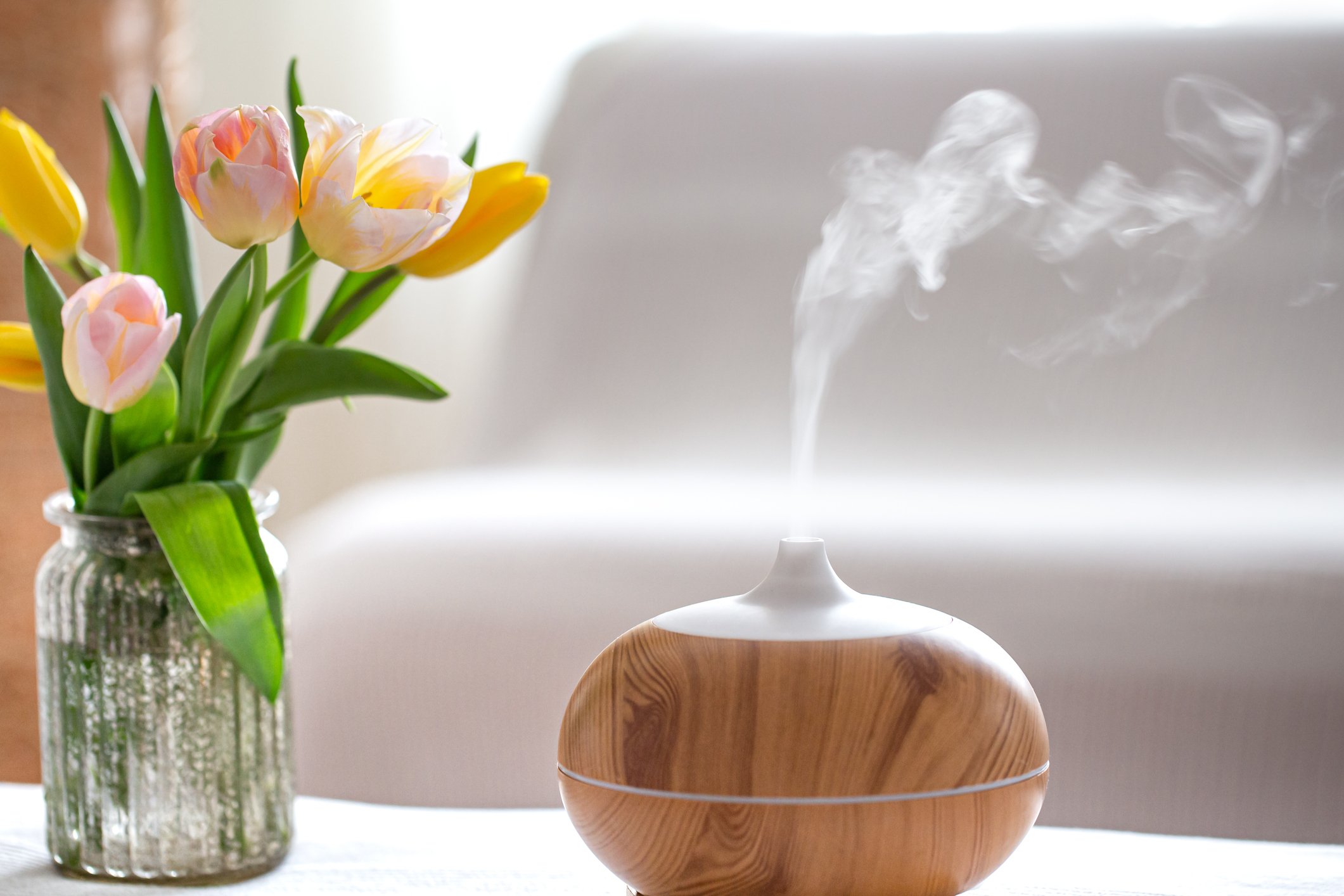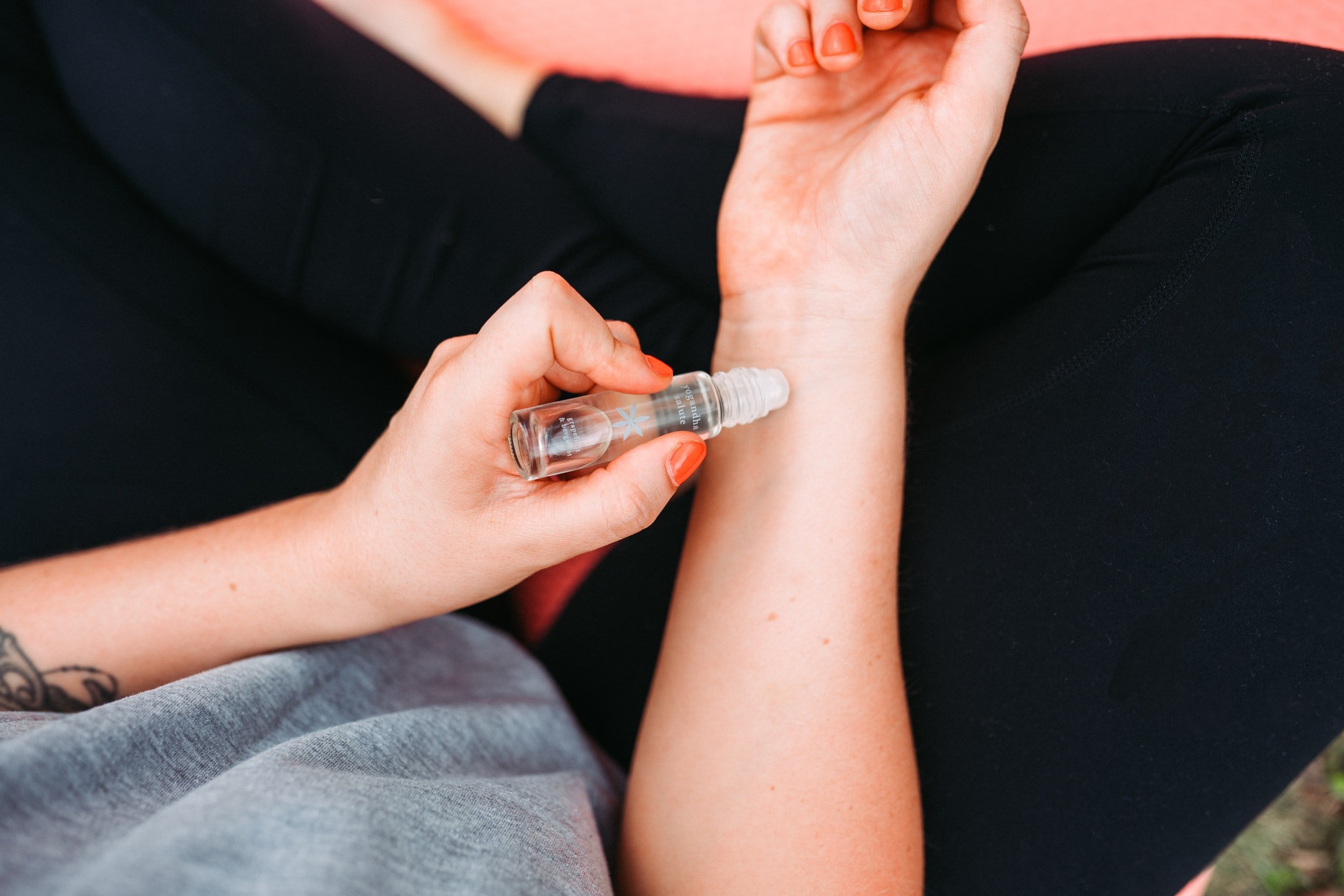Are Essential Oils Placebo?
I often get questions from friends, family members and through Instagram asking me about essential oils:
“Do they really work?”
“Are they just a placebo?”
“Is there any science to back some of the claims?”
As someone who is incredibly science focused and loves evidence-based practices, the idea of aromatherapy potentially having a placebo effect has always fascinated me. It is best to break this down into two parts:
1) The chemistry of essential oils and physiological role within body
2) The psychological impact of essential oils
The Chemistry of Essential Oils
Essential oils are: highly concentrated aromatic extracts that are distilled or expressed from a variety of aromatic plant material, including flowers, flowering tops, fruits, grasses, leaves, needles, twigs, resins, roots, seeds and woods.
When I am referring to phytochemistry (plant) and aromatic chemistry (essential oils), here's what we know:
The chemistry of a plant is maintained after extraction either through distillation or cold pressed or other methods of extraction.
Essential oils are made up of dozens to hundreds of different chemical constituents that have been shown to have varying properties to benefit the body. For example, aldehydes, ketones, terpenes, phenols, esters etc.
What some people don't know is that these chemicals are already within products of our homes.
On the back label of a mouthwash, you will see under active ingredients menthol, thymol, eucalyptol, and/or methyl salicylate. On Icy hot: menthol. Vapor bath or vapor chest rub: Eucalyptol.
These are all chemical constituents also found in essential oils.
If one is plant derived and one is synthetically reproduced in a lab based off an isolated plant compound...does that make the plant derived compound a placebo? NO.
Over 20% of modern-day medications are plant derived or synthetically reproduced in a lab based upon an isolated plant compound. Today there are over 100 active ingredients are derived from plants for use in drugs and medications. Atropine, aspirin, morphine, digoxin, codeine to name a few. (1)
Morphine is made by extracting the alkaloids from an opium poppy plant (papaver somniferum).
We have known for a long time that plant compounds can have an influence on the human body.
Essential oils fall into categories based upon the percentages of their chemical constituents. These components have anti-inflammatory, antiseptic, antiviral, analgesic, sedative, cytophalatic (cell regenerative) properties among many more. For example: phenols are antibacterial, esters are calming and have sedative and antifungal properties, aldehydes are calming to the nervous system. This is why they have such amazing benefits for supporting our bodies for sleep, skin, hormones, respiratory, emotions, digestion, stress, focus and more.
A quick search of “essential oil” through PubMed , a National Library of Medicine database for biomedical literature yields over 29,000 articles. As research continues to grow, the healthcare system is becoming more aware of the potential benefits of essential oils for supporting inflammation, pain, anxiety, nausea and more. While there is still a great deal of research to be done, the benefits are still exciting. Conditions like irritable bowel syndrome have been shown to benefit from peppermint oil. (2) Peppermint and Lavender have proven to be useful in helping headaches and migraines. (3) Copaiba been researched to have positive impact on acne, psoriasis and other skin conditions. (4)(5)(6) Multiple oils have been shown to be helpful in the seasonal transition to Spring.
Apply a little peppermint essential oil to your skin and you immediately get a local cooling sensation. One of the principal chemical constituents of peppermint essential oil is menthol. Menthol creates a somatosensory effect when applied to the skin. The somatosensory system is part of our sensory nervous system and contains sensory receptors cells that are activated by different stimuli such as heat and nociception (pain receptors). A randomized, double-blind, controlled study showed that applying a 10% peppermint oil in ethanol solution to the forehead and temples can significantly reduce headache intensity in tension-type headaches, making it an effective remedy for such headaches. (7)
The Psychological Impact of Essential Oils
I think the question “Are Essential Oils Placebo?” is asked based upon the psychological effect.
Placebo is defined as a "harmless pill, medicine, or procedure prescribed more for the psychological benefit than the physiological effect." (8)
I find the definition of placebo interesting..."something that is harmless that provides a beneficial effect.” What's the big deal then? Why is a placebo looked at so negatively if it is harmless and creating a beneficial psychological benefit? Placebos have been proven to be powerful even when a person knows they are taking a placebo. (9)
The Mind-Body Connection
It is hard to deny that the mind and body have a strong connection...both beneficial and harmful to health. The mind-body connection is one of the most profound within the human body. There are so many examples of this:
The gut brain axis: a biochemical bidirectional communication that exists between our gastrointestinal tract and our brain. Connected neurons, hormones and neurotransmitters send signals to our brain about our gut and even allow our brain to directly control our gut function. Our gastrointestinal tract is sensitive to emotion. Anger, sadness, anxiety and elation can all trigger symptoms in our gut.
Stress and Thoughts: Our mere thoughts can trigger a stress response within the body. We hold physical manifestations of stress within our body in different ways such as clenching jaw, tense shoulders, forming fists and furrowing eyebrows, holding breath.
Stress and inflammation: Stress can cause the body to initiate an inflammatory response which then can affect the immune system. It can also affect hormones which then domino to impacting our libido, energy, and sleep.
Pain: the definition of pain within itself is “an unpleasant sensation AND the emotional response to that sensation”. Stress and negative emotions can exacerbate pain.
Positive Thinking: The Mayo Clinic reports a number of health benefits associated with optimism including better cardiovascular health, less depression and an increased life span. Positive thinkers cope more effectively with stress, have stronger immune responses, and improved wellness.
This is one reason I love essential oils. They have a profound ability to strengthen the mind body connection and create positive stress reducing coping skills. Aromatherapy can also be a helpful technique to elicit the relaxation response. Due to the complex constituents essential oils can play a role in transforming unpleasant emotions, inducing relaxation and potentially reducing the damaging effects of stress on the mind and body.
But are they placebo?
The studies showing potential for placebo effect with essential oils are very conflicting. Some show potential for placebo. Whereas other studies show potential for physiological and psychological effect based upon the essential oil.
While some believe aromatherapy is no more than a placebo, there is a growing body of evidence that can’t be ignored. In one large retrospective study of 18,000 aromatherapy sessions for over 9000 patients in 10 US hospitals, it was found that those who used essential oils were significantly effective. (10) Does that prove placebo? Likely not.
Why are essential oils difficult to study?
The psychological benefits of essential oils are purely subjective. They differ from person to person which is similar to a lot of things that influence our psyche. I know if I go for a walk in nature, I feel great. This is subjective. We all differ in how our body and mind are impacted by various exercises, foods we eat, even our sleeping patterns.
Essential oils add a whole extra layer to this. We know that the most pronounced psychological benefit a person has to essential oils is through our sense of smell. Scent can influence and trigger strong emotions due to the anatomy of the olfactory system and its direct connection with the limbic system (which plays a role in our emotions, motivations and behaviors). Within the limbic system is the hippocampus which is important for forming new memories and connecting emotions and our sense of smell to memories. Scent can trigger vivid emotional memories. Ever smelled freshly mowed grass and immediately remember your childhood or a memory of your dad? Open a crayon box and be taken back to your first-grade classroom? Get a whiff of your mom’s old perfume and suddenly you're reminiscing on memories you haven’t thought of in years? Aromas are extremely subjective and conducting studies is challenging based on our familiarity, stored memory scent connections, odor preferences, perceptions, as well as expectations.
When I first started using essential oils for cleaning and for sleep, I loved them. I thought using them for emotions was a little wonky. I noticed when I had diffuser going, I felt calmer, happier, relaxed and more refreshed. I thought "cool placebo!”
Then I started using them for my kids. One of my children was having a huge tantrum and I tried everything in the "parenting book"...distracting, sitting with them, ignoring them, taking deep breaths, nothing was helping. I got out a little lavender oil roller and I rolled a little on them. Immediately it was like something reset and we were able to talk through the emotions. I thought……. placebo? I wasn’t quite so sure. This child had zero expectations of the essential oil and what I was doing as they were in full on fight or flight response.
How can a child have this "biology of belief" and assumption that they know it is going to help when they don’t even know what it is or what it is "supposed to do?”
That's when I realized there is a lot more to the science of essential oils. I started reading more books and reseach studies about emotions, the stress response and psychological benefits of aromatherapy.
Are essential oils placebo? Are they not? If something is harmless* and offering a benefit for the mind thus influencing the body in positive way....
Does it really matter?
*While essential oils are natural, it is still important to know that they are powerful and potent. Essential oils are safe when used appropriately for the person with appropriate route of administration and appropriate dilution, length of time and intensity based upon the individual’s goal. Get my free dilution guide here.
References:
Taylor, Leslie. Plant-Based Drugs and Medicines. Square One Publishers, 2000, Garden City Park, N.Y.
Cash BD, Epstein MS, Shah SM. A Novel Delivery System of Peppermint Oil Is an Effective Therapy for Irritable Bowel Syndrome Symptoms. Dig Dis Sci. 2016 Feb;61(2):560-71. doi: 10.1007/s10620-015-3858-7. Epub 2015 Aug 29. PMID: 26319955; PMCID: PMC4729798.
Sasannejad P, Saeedi M, Shoeibi A, Gorji A, Abbasi M, Foroughipour M. Lavender essential oil in the treatment of migraine headache: a placebo-controlled clinical trial. Eur Neurol. 2012;67(5):288-91. doi: 10.1159/000335249. Epub 2012 Apr 17. PMID: 22517298.
Veiga Junior VF, Rosas EC, Carvalho MV, Henriques MG, Pinto AC. Chemical composition and anti-inflammatory activity of copaiba oils from Copaifera cearensis Huber ex Ducke, Copaifera reticulata Ducke and Copaifera multijuga Hayne--a comparative study. J Ethnopharmacol. 2007 Jun 13;112(2):248-54. doi: 10.1016/j.jep.2007.03.005. Epub 2007 Mar 7. PMID: 17446019.
da Silva AG, Puziol Pde F, Leitao RN, Gomes TR, Scherer R, Martins ML, Cavalcanti AS, Cavalcanti LC. Application of the essential oil from copaiba (Copaifera langsdori Desf.) for acne vulgaris: a double-blind, placebo-controlled clinical trial. Altern Med Rev. 2012 Mar;17(1):69-75. PMID: 22502624.
Gelmini F, Beretta G, Anselmi C, Centini M, Magni P, Ruscica M, Cavalchini A, Maffei Facino R. GC-MS profiling of the phytochemical constituents of the oleoresin from Copaifera langsdorffii Desf. and a preliminary in vivo evaluation of its antipsoriatic effect. Int J Pharm. 2013 Jan 20;440(2):170-8. doi: 10.1016/j.ijpharm.2012.08.021. Epub 2012 Aug 20. PMID: 22939967.
Göbel H, Fresenius J, Heinze A, Dworschak M, Soyka D. Effektivität von Oleum menthae piperitae und von Paracetamol in der Therapie des Kopfschmerzes vom Spannungstyp [Effectiveness of Oleum menthae piperitae and paracetamol in therapy of headache of the tension type]. Nervenarzt. 1996 Aug;67(8):672-81. German. doi: 10.1007/s001150050040. PMID: 8805113.
Merriam-Webster’s Collegiate Dictionary, 11th edition. Thomas Press India Ltd. 2020, India.
Guevarra DA, Moser JS, Wager TD, Kross E. Placebos without deception reduce self-report and neural measures of emotional distress. Nat Commun. 2020 Jul 29;11(1):3785. doi: 10.1038/s41467-020-17654-y. PMID: 32728026; PMCID: PMC7391658.
Johnson JR, Rivard RL, Griffin KH, Kolste AK, Joswiak D, Kinney ME, Dusek JA. The effectiveness of nurse-delivered aromatherapy in an acute care setting. Complement Ther Med. 2016 Apr;25:164-9. doi: 10.1016/j.ctim.2016.03.006. Epub 2016 Mar 7. PMID: 27062964.
Disclaimer: This blog is for general informational purposes only and does not constitute the practice of medicine, nursing or other professional health care services, including the giving of medical advice. The use of information on this blog or materials linked from this blog is at the user's own risk. The content of this blog is not intended to be a substitute for professional medical advice, diagnosis, or treatment. Users should not disregard, or delay in obtaining, medical advice for any medical condition they may have, and should seek the assistance of their health care professionals for any such conditions.






